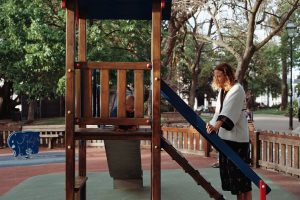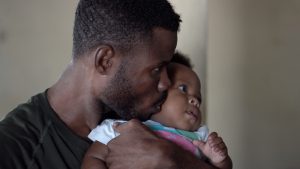By Shay Stinson
Sometimes creating connections and maintaining bonds with people in your biological family can be difficult, but it can be especially difficult for children in foster care. In addition to the traumas that led them to be in the child welfare system, after entering care, the desire and complications of maintaining connections are now extra burdens they must bear. There are many hindrances to these connections being maintained and, most importantly, repaired and healed. As a foster parent, there are ways you can help facilitate healthy and meaningful relationships between your foster children and their biological family members.
Of course, as a care professional, your main concern is the safety and stability of your child. First, make sure it’s allowed for contact to be maintained with their biological family members. If there are restrictions on this, you can request a list of family members who can maintain contact with the child. Depending on the child’s age and their family history, you can be creative in teaching the child how to engage in contact with their family such as writing letters or postcards.
Setting dates and times for visitation and activities help everyone prepare for reconnecting and be in a clear head-space before meeting. If your foster child can spend time privately with their biological family, don’t be hurt if there are moments when they ask you not to be involved. Spend time with them before their interaction with their biological family in case they have concerns, questions, or anxiety about the situation.
Here are a few ideas for activities to help your foster child spend quality time connecting with their biological relatives: playing in a park, visiting a museum, movie outings, lunch or dinner dates, shopping, or school-related activities. With their biological family members still involved in their lives, these activities will give your foster child a sense of normalcy and give them a chance to bond.
You can and should monitor the connections and any activities your child participates in with their biological family members. Although it is imperative for their overall health to maintain these relationships, nothing trumps their safety. Keep in mind the trauma that took place and led this family unit into child welfare services will never go away. But with proper care and treatment, the family can heal. Permanency goals will also play a part in how the connection between your child and their biological family is maintained.
If the goal is reunification, it may be more of an open-door policy for contact and visitations. If the permanency goal is adoption, you must be careful about how biological relationships are handled. Family history may cause hurdles in relationship building but it’s still important to be supportive of the bonding that your child craves with their biological family. For instance, a history of physical or substance abuse may cause negative feelings to exist in the family. This is where your assistance and creativity may be useful. For instance, a family outing at a self-help meeting is a great way to heal from a family history of substance abuse. Most meetings are anonymous and still give the children time to speak and express thoughts.
Foster care does not erase family. Children have memories of their family members and an inherent desire to know who and where they come from. No matter how old they are or how long they remain physically apart from their biological family, they never forget where they came from. If their biological parents are not available for building relationships, they can stay connected with siblings, grandparents, aunts and uncles, or cousins—whoever they have.
Studies show that children in foster care and adopted children have more success in life, despite their history of trauma, when they are allowed and encouraged to maintain connections with their biological families. They may handle being away better if they can talk to their family, visit with them, and have space to heal from negative situations that haunt them. While there may be many barriers to maintaining healthy relationships with biological family, the positive effects are worth the effort. For foster parents, ushering and assisting in this task will allow your child to build trust with you. They just met you, and most likely, you have not experienced enough together to have a solid foundation of trust, especially considering they already probably have trust issues due to trauma. Earn their trust by giving them your support. You can also use your efforts to teach your foster child the importance of scheduling, communication skills, and how to voice their own thoughts and opinions. Being able to depend on you for healing with their biological family will also drastically reduce placement disruptions.
Overall, there are many benefits for your foster child to maintain relationships with their family. More than anything, they deserve this basic human right. Being placed in foster care was not in their plans. As care providers, we need to make sure our foster children retain their rights to meaningful and healthy family relationships and connections. The love, healing, and other benefits are worth the effort.



